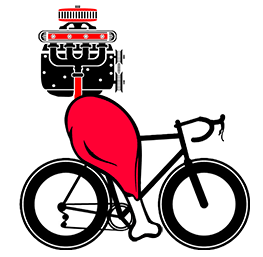A recent study has some interesting findings.
Researchers discovered that having to complete mental efforts that exert self-control prior to a 10 km cycling time-trial may impact your pacing strategies, especially during the first 7 km of the race. The study involved fifteen trained male cyclists who performed four simulated 10 km time-trials on a cycle ergometer. They were given tasks to manipulate the degree of required pre-time trial mental self-control, and they received either a caffeine or placebo mouth rinse to see if it could counter the effects of self-control exertion.
Though overall 10 km performance time wasn’t affected by self-control or caffeine, split times were slower after heavier self-control mental exertion at 3 km and 5 km, and tended to be slower at 1 km and 7 km. The caffeine mouth rinse didn’t show any significant impact on pacing strategies.
So, what does this mean for possible pacing gains? Here are some practical steps to implement these findings into your race preparation:
- Be mindful of self-control exertion: Avoid mentally challenging tasks that require high levels of self-control just before your race. Save your mental energy for the road ahead.
- Focus on pacing strategies: Since self-control exertion affects your pacing, practice maintaining a steady pace throughout your training sessions to help mitigate any negative effects during a race.
- Mental training: Incorporate mental training techniques into your cycling routine, such as visualization or meditation, to help manage self-control exertion and its effects on your race performance.
In conclusion, managing self-control exertion is part of optimizing your pacing.
Published in Psychology of Sport and Exercise
Citations: 3
2021
Abstract
Abstract Objectives The exertion of self-control has been associated with impaired performance on subsequent physical tasks also requiring self-control. However, the effect in well-trained individuals, and of nutritional intervention strategies to reduce the impact of self-control exertion are unknown. This study, therefore, explored the effect of self-control exertion on endurance performance, and pacing strategies, in well-trained individuals. A further aim was to examine the potential for a caffeine mouth rinse to attenuate any decrements in performance due to self-control exertion. Method Following familiarization, fifteen trained male cyclists completed four simulated 10 km cycling time-trials on a cycle ergometer. Prior to each time-trial, participants completed a congruent Stroop task, or an incongruent Stroop task, to manipulate self-control. They also received either a caffeine (containing 40 mg of dissolved caffeine) or placebo mouth-rinse prior to, and every 2 km during, the cycling time-trial. The participants’ performance time, subjective measures (perceived pain, motivation, task importance, and RPE), heart rate, and blood lactate concentration were recorded throughout the time-trials. Data were analysed using three-way (self-control*caffeine*split time) repeated measures ANOVA. Results There was no effect of self-control or caffeine on overall 10 km performance time (all p > 0.05). However, following self-control exertion, split time was significantly slower at 3 km (p = 0.031) and 5 km (p = 0.034), and tended to be slower at 1 km (p = 0.088) and 7 km (p = 0.078). There was no effect of the caffeine mouth rinse, nor did this interact with self-control, to affect split times (all p > 0.05). Prior self-control exertion and a caffeine mouth rinse did not influence perceptions of pain, motivation, and task importance in well-trained individuals (all p > 0.05).
Conclusions Findings suggest that prior self-control exertion affects self-regulatory pacing strategies during the first 7 km of a 10 km cycling time-trial, in well-trained individuals. However, caffeine mouth rinsing does not attenuate the effects of self-control exertion on subsequent endurance performance.
Authors
R. Boat, Ollie Williamson, J. Read

Jordan Fowler has experience as a head swimming coach of the Frisco Swim Team, a TAAF-awarded coach, a track and field distance running consultant for select Texas High School runners, and has competed as a triathlete, road runner, and cyclist. Though he is remarkably slower than he was in his 20s and 30s, he still enjoys endurance sports and sports science studies.
